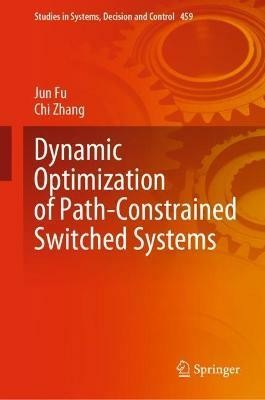Dynamic Optimization of Path-Constrained Switched Systems(English, Hardcover, Fu Jun)
Quick Overview
Product Price Comparison
This book provides a series of systematic theoretical results and numerical solution algorithms for dynamic optimization problems of switched systems within infinite-dimensional inequality path constraints. Dynamic optimization of path-constrained switched systems is a challenging task due to the complexity from seeking the best combinatorial optimization among the system input, switch times and switching sequences. Meanwhile, to ensure safety and guarantee product quality, path constraints are required to be rigorously satisfied (i.e., at an infinite number of time points) within a finite number of iterations. Several novel methodologies are presented by using dynamic optimization and semi-infinite programming techniques. The core advantages of our new approaches lie in two folds: i) The system input, switch times and the switching sequence can be optimized simultaneously. ii) The proposed algorithms terminate within finite iterations while coming witha certification of feasibility for the path constraints. In this book, first, we provide brief surveys on dynamic optimization of path-constrained systems and switched systems. For switched systems with a fixed switching sequence, we propose a bi-level algorithm, in which the input is optimized at the inner level, and the switch times are updated at the outer level by using the gradient information of the optimal value function calculated at the optimal input. We then propose an efficient single-level algorithm by optimizing the input and switch times simultaneously, which greatly reduces the number of nonlinear programs and the computational burden. For switched systems with free switching sequences, we propose a solution framework for dynamic optimization of path-constrained switched systems by employing the variant 2 of generalized Benders decomposition technique. In this framework, we adopt two different system formulations in the primal and master problem construction and explicitly characterize the switching sequences by introducing a binary variable. Finally, we propose a multi-objective dynamic optimization algorithm for locating approximated local Pareto solutions and quantitatively analyze the approximation optimality of the obtained solutions. This book provides a unified framework of dynamic optimization of path-constrained switched systems. It can therefore serve as a useful book for researchers and graduate students who are interested in knowing the state of the art of dynamic optimization of switched systems, as well as recent advances in path-constrained optimization problems. It is a useful source of up-to-date optimization methods and algorithms for researchers who study switched systems and graduate students of control theory and control engineering. In addition, it is also a useful source for engineers who work in the control and optimization fields such as robotics, chemical engineering and industrial processes.


